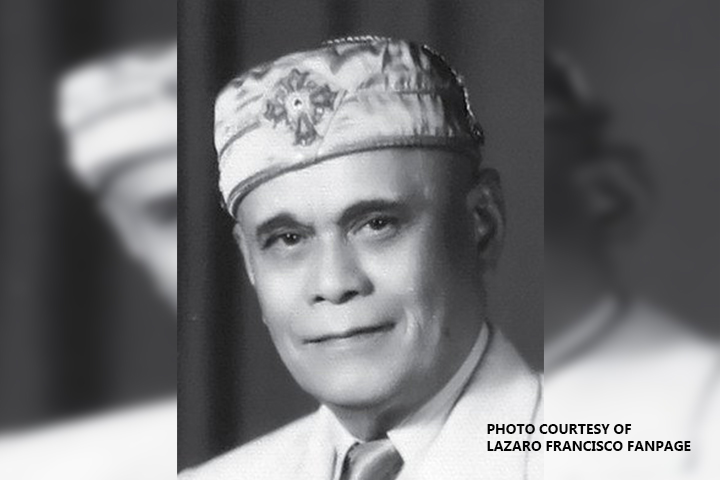News
KWF promotes late Filipino literary master’s work

Francisco was born on Feb. 22, 1898 in Bataan province’s Orani town, the fourth child of Eulogio Francisco and Clara Angeles. He eventually migrated to and permanently resided in Nueva Ecija province. (PNA photo)
MANILA — The Komisyon sa Wikang Filipino (KWF), the government agency tasked to promote Philippine languages, is urging Filipinos to read the writings of the late Philippine National Artist for Literature Lazaro Francisco, whose 120th birth anniversary the agency celebrated Thursday, Feb. 22.
“His writings embody the spirit of nationalism,” said KWF education and networking chief John Torralba, explaining the continuing relevance of Francisco’s work.
He noted Francisco was able to express his nationalism without compromising the quality of writings he produced.
“Ama”, “Bayang Nagpatiwakal”, “Maganda pa ang Daigdig”‘ and “Daluyong” are among Francisco’s novels.
According to National Commission for Culture and the Arts (NCCA), Francisco developed Philippine fiction’s social realist tradition.
“(Francisco) championed the cause of the common man, specifically the oppressed peasants. His novels exposed the evils of the tenancy system, the exploitation of farmers by unscrupulous landlords, and foreign domination,” NCCA said, quoting writer Amadis Ma. Guerrero.
NCCA said Francisco’s novels have gained recognition as classics of Philippine literature, noting his novels reflect the late writer’s commitment to nationalism.
“We can learn a lot about love of country by reading his writings,” said Torralba.
Francisco was born on Feb. 22, 1898 in Bataan province’s Orani town, the fourth child of Eulogio Francisco and Clara Angeles. He eventually migrated to and permanently resided in Nueva Ecija province.
This year, KWF marked Francisco’s birth anniversary by hosting in Metro Manila a “tertulia” or informal gathering of family, friends, and colleagues to celebrate his life and work.
The late Philippine journalist Teodoro Valencia had described Francisco’s writings as dignifying the Filipino and highlighting everything that is positive about the Filipino way of life, NCCA noted.
“His writings have contributed much to the formation of Filipino nationalism,” NCCA cited Valencia as saying.
NCCA claimed Francisco became famous for the social relevance of his writings and masterful handling of the Tagalog language.
To better advocate Tagalog as national language, NCCA said Francisco established Kapatiran ng mga Alagad ng Wikang Pilipino in 1958. Francisco died on June 17, 1980,
Among the recognitions Francisco received during his lifetime was the 1970 Republic Cultural Heritage Award.
University of the Philippines in 1997 recognized him as the “foremost Filipino novelist of his generation” and “champion of the Filipino writer’s struggle for national identity”.
The government posthumously conferred on him in 2009 the National Artist Award for Literature.
A National Artist is a Filipino who made significant contributions to the development of Philippine arts in the fields of music, dance, theater, visual arts, literature, film, and architecture.
The government confers the National Artist Award upon the recommendation of NCCA and Cultural Center of the Philippines.
In 1972, the government posthumously conferred the first National Artist Award on painter Fernando Amorsolo. (PNA)





















